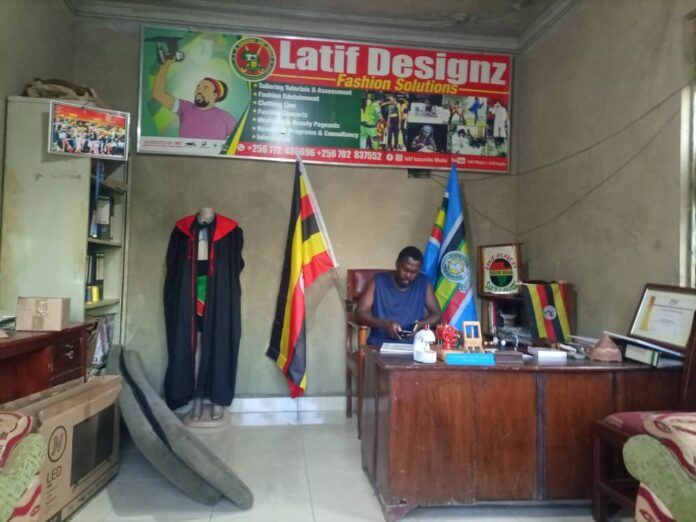
Designer Latif Kasumba Madoi is in high gear for the anticipated Rasta Massive (Rasmas), an event designed to honor fallen and living social and political personalities on Friday, October 18, 2024, at Reggae Embassy Uganda headquarters located in Jokolera village on Kiti road in Kawanda, Kasangati town council in Wakiso district.
While speaking to our reporter, Madoi said that it is unfortunate that when police raided his school looking for military attire, they took his equipment and disorganized him, but he is ready to continue with his talent and empower the youth.
“Police raided my place and took all my machines, which I have never recovered. I was in prison for 43 days; my dreadlocks were cut, and when I was released, I had to start from scratch,” he said.
Read Also: Designer Madoi to Host a Rasmas Event in Honour of Fallen, Living Personalities
The 47-year-old designer, who has made clothes for celebrities like late South African reggae icon Phillip Lucky Dube and Jamaica’s Busy Signal, was detained on May 13, 2024, after police raided his school and found him with military attire, which he said was from the US army.
He noted that he has been of great impact to the youth who are interested in art and design, with some of his former students being tutors in different institutions.
The no longer dreadlocked Rasta confirmed the attendance of artists like Jose Chameleone, Pallaso, Weasle, Melody, and Zex Bilangilangi, a band that will play Dube’s songs with several DJs, models, and more entertainment.
This event is celebrated by Rastas on October 18th every year. It began to be celebrated since 2007, the day when South African reggae artist Phillip Lucky Dube was killed.
Rasmas is a Rastaman’s celebration of jubilation in combination with civilization and modernization. It is liberation and a revolution for the young generation to acquire education with positive and vibrant inspirations in society, with the dress code being freedom colors.














